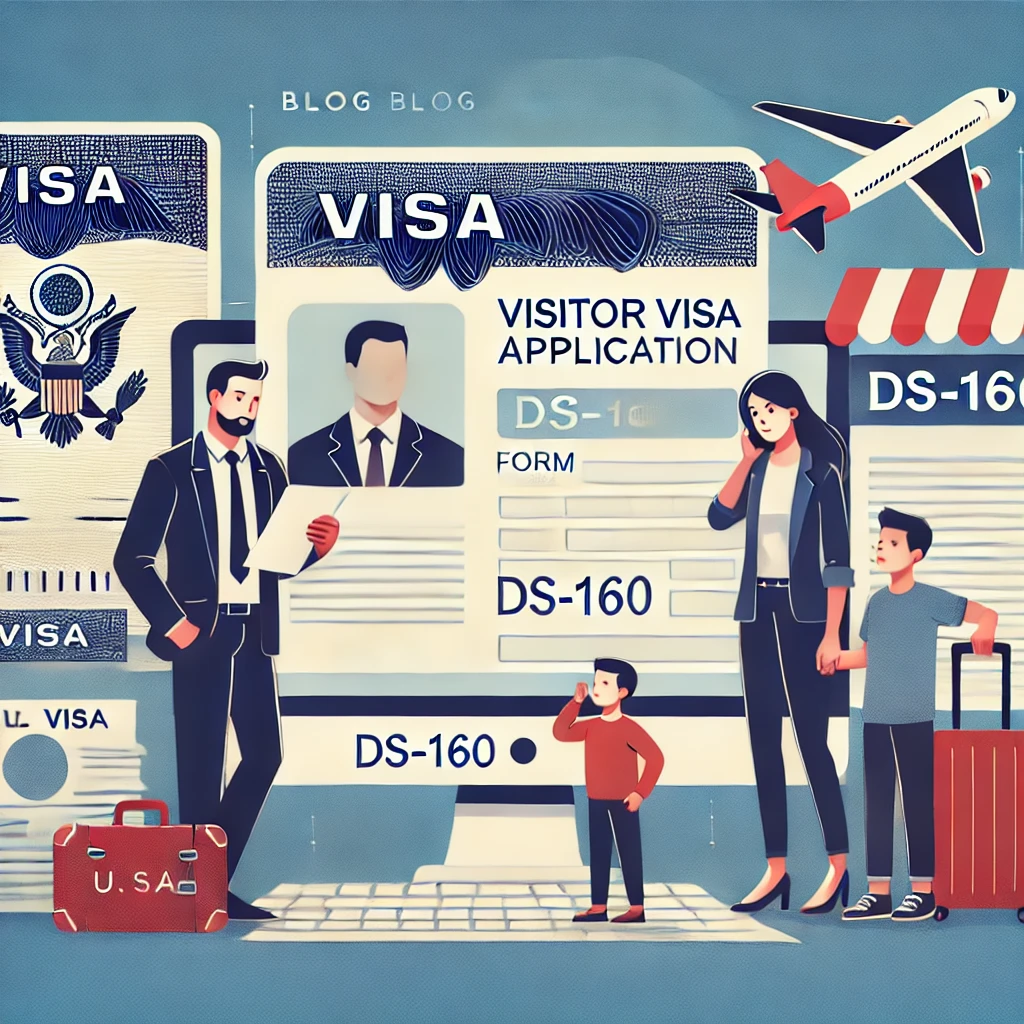
Should Family Members Disclose Your Asylum Application When Applying for Visitor Visas?
My family wants to apply for visitor visas (B-2) to visit me in the U.S. this January. I applied for asylum earlier this year after overstaying my visa. Should they mention my asylum status in their visa applications, or is it better to simply state they are visiting for tourism?"
Expert Answer:
Understanding Visitor Visa Applications for Family Members of Asylum Applicants: When applying for a visitor visa (B-2), applicants must demonstrate that their visit is temporary and that they have strong ties to their home country, ensuring they do not intend to overstay. For family members of individuals with pending asylum applications, certain considerations must be made to address potential concerns from U.S. immigration authorities.
Should Your Family Mention Your Asylum Status?
Yes, it is recommended that your family disclose your presence in the U.S. and your pending asylum application. Immigration authorities cross-check records, and failing to mention your situation could raise red flags, leading to visa denials or complications in the future.
1. What Your Family Should Emphasize in Their Applications:
- Honesty About Your Situation:
- If asked about family in the U.S., your family should acknowledge your presence and pending asylum case.
- Omitting this information could be seen as misrepresentation, which could harm their visa eligibility.
- Strong Ties to Their Home Country:
- To convince immigration officers of their intent to return, they should provide evidence such as:
- Employment or business commitments.
- Property ownership or leases.
- Family obligations, such as dependents or elderly relatives.
- Financial stability, including bank statements or assets.
- To convince immigration officers of their intent to return, they should provide evidence such as:
- Clear Purpose of Visit:
- Your family should clearly state their purpose for visiting, such as attending a family event, tourism, or temporary family support.
- They must demonstrate that their visit is limited in duration and that they have no intention of overstaying their visas.
2. How Immigration Authorities Evaluate Visitor Visa Applications:
- Have strong ties to their home country.
- Intend to leave the U.S. after their authorized stay.
U.S. consular officers evaluate visitor visa applications under Section 214(b) of the Immigration and Nationality Act (INA). This requires applicants to prove they:
Having a family member with a pending asylum application does not automatically disqualify applicants from obtaining a visitor visa, but it may increase scrutiny of their intent to return home.
3. Tips for a Successful Visa Application:
- 1. Complete the DS-160 Form Accurately:
- On the application form, your family should list all immediate family members in the U.S., including you.
- Provide truthful answers about their plans, financial situation, and ties to their home country.
- 2. Prepare for the Visa Interview:
- Your family should be ready to explain:
- Their relationship to you.
- Their purpose for visiting.
- How they will fund their trip.
- Their plans to return home.
- Your family should be ready to explain:
- 3. Provide Supporting Documents:
- Employment verification letters.
- Proof of property ownership or tenancy.
- Bank statements showing financial capability.
- Proof of planned return travel, such as round-trip tickets.
4. Potential Outcomes and Considerations:
- 1. Approval:
- If the consular officer is satisfied with their ties to their home country and their temporary visit intentions, the visa may be approved.
- 2. Denial:
- A visa could be denied if the officer believes they might overstay or join you in applying for asylum.
- A denial under Section 214(b) does not permanently bar future applications but indicates the officer was not convinced of their intent to return home.
- 3. Future Impact:
- Honest and accurate information builds credibility for future immigration processes.
- Misrepresentation could result in visa ineligibility under Section 212(a)(6)(C)(i) of the INA.
Key Points About U.S. Immigration Law and Visitor Visas:
1. Truthfulness Is Crucial: Providing accurate information ensures compliance with U.S. immigration laws and avoids potential bans due to misrepresentation.
2. Ties to Home Country: Demonstrating strong ties to their home country is the most critical factor in securing a visitor visa.
3. Temporary Intentions: Immigration authorities must be convinced that your family’s visit is short-term and that they intend to leave the U.S. as required.
Authoritative Resources:
- Visitor Visa (B-2) Information – U.S. State Department
- DS-160 Online Nonimmigrant Visa Application
- INA Section 214(b) – Nonimmigrant Intent
By providing truthful answers and demonstrating strong ties to their home country, your family can increase their chances of obtaining visitor visas while maintaining compliance with U.S. immigration laws.

Oware Justice Advocates PC – Where Integrity Meets Advocacy
Your fight is our mission. Let us help you navigate the path to justice.
Let’s Get Started
Your legal challenges deserve personalized attention and innovative solutions. Contact Oware Justice Advocates PC today for a consultation and take the first step toward resolution and peace of mind.
355 South Teller Street, Suite 204,
Lakewood, CO 80226
(Visits to the office are strictly by appointment only)
303-514-6589

